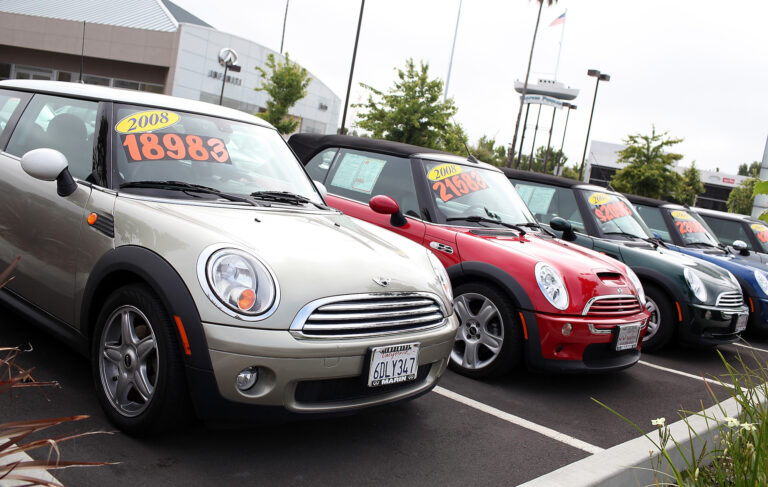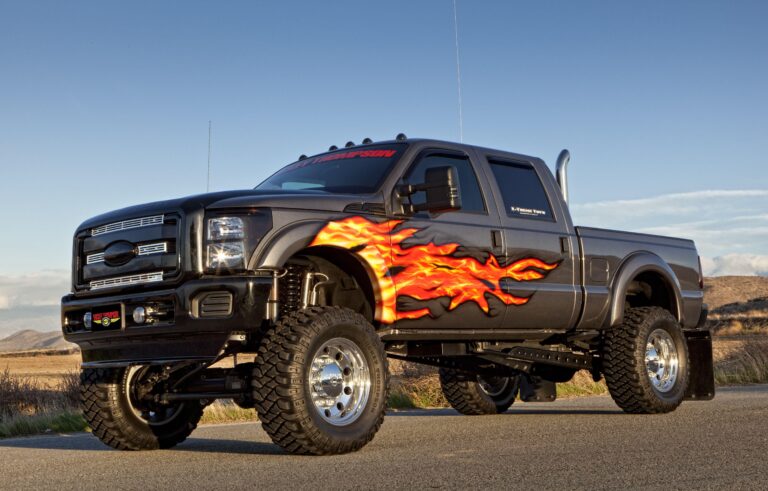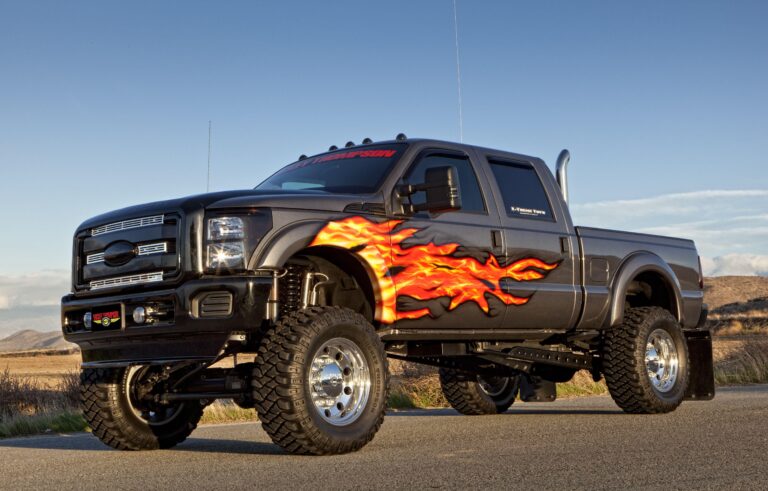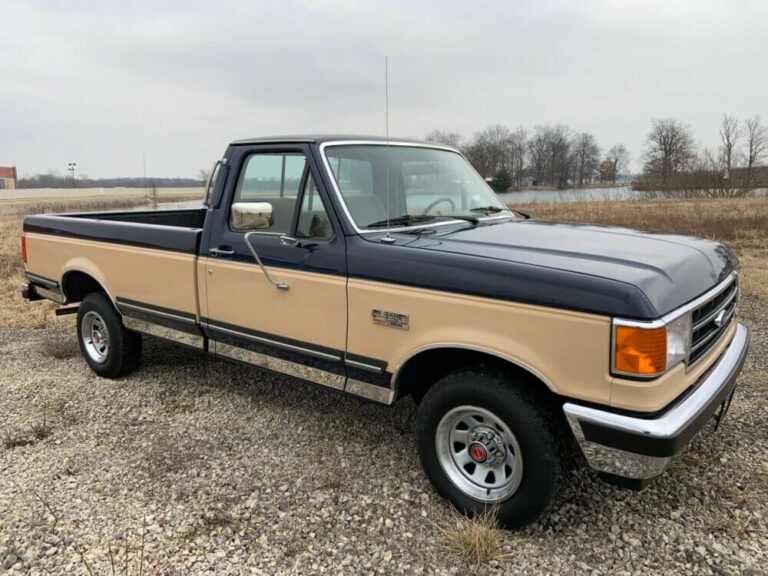Used Box Trucks For Sale By Owner Craigslist: A Comprehensive Guide
Used Box Trucks For Sale By Owner Craigslist: A Comprehensive Guide cars.truckstrend.com
The backbone of countless small businesses, independent contractors, and even ambitious DIY movers, the box truck offers unparalleled utility for transporting goods, equipment, or furniture. While brand-new models can represent a significant capital expenditure, the market for used box trucks presents a highly appealing alternative. Specifically, exploring "Used Box Trucks For Sale By Owner Craigslist" opens up a unique avenue for cost-effective acquisition, direct negotiation, and often, a deeper insight into a vehicle’s history.
This guide delves into the nuances of navigating Craigslist to find your ideal used box truck. We’ll explore the advantages of buying from a private owner, the critical steps of the search and inspection process, how to negotiate effectively, and what potential pitfalls to watch out for. Our aim is to equip you with the knowledge and confidence to make an informed purchase that serves your operational needs for years to come.
Used Box Trucks For Sale By Owner Craigslist: A Comprehensive Guide
Why Buy a Used Box Truck from a Private Owner on Craigslist?
Opting for a used box truck from a private seller on Craigslist, as opposed to a dealership or auction, comes with several compelling benefits:
- Significant Cost Savings: The most immediate advantage is the lower purchase price. Private sellers typically don’t have the overhead costs of a dealership (staff, facilities, marketing), allowing them to offer vehicles at more competitive rates. You also avoid dealer markups, which can add thousands to the price.
- Direct Negotiation: Dealing directly with the owner provides more flexibility for negotiation. Unlike a fixed-price dealership, a private seller may be more willing to discuss the price based on the truck’s condition, your readiness to buy, or simply their motivation to sell quickly.
- Potential for Better Value: Many private owners have used their box trucks for specific, often lighter-duty, purposes and may have maintained them meticulously. They can provide detailed maintenance records and share candid insights into the vehicle’s history, quirks, and performance, which a dealership might not be able to offer.
- Local Convenience: Craigslist is hyper-local. This means you’re often looking at trucks within a reasonable driving distance, making inspections and test drives far more convenient than traveling to distant dealerships or auctions.

Understanding Box Trucks: Types and Key Features
Before you even start browsing, understanding the different types of box trucks and their critical features is paramount to matching a vehicle to your specific needs.
Types of Box Trucks:
- Light-Duty Box Trucks (10-14 feet): These are typically built on a cutaway van chassis (e.g., Ford E-Series, Chevy Express, Ram ProMaster) and are excellent for local deliveries, small moving jobs, or light hauling. They are easier to maneuver and often don’t require a Commercial Driver’s License (CDL) for operation.
- Medium-Duty Box Trucks (15-20 feet): Often built on dedicated truck chassis (e.g., Isuzu NPR, Hino 195, Fuso FE, Ford F-Series), these offer significantly more cargo space and payload capacity. They are popular for courier services, larger moving companies, and general freight. Most still do not require a CDL, but it’s essential to check the Gross Vehicle Weight Rating (GVWR).
- Heavy-Duty Box Trucks (22-26 feet): These are the largest non-articulated box trucks (e.g., Freightliner M2, International Durastar). They are designed for substantial loads and long-haul operations. A CDL is often required to operate these due to their higher GVWR.
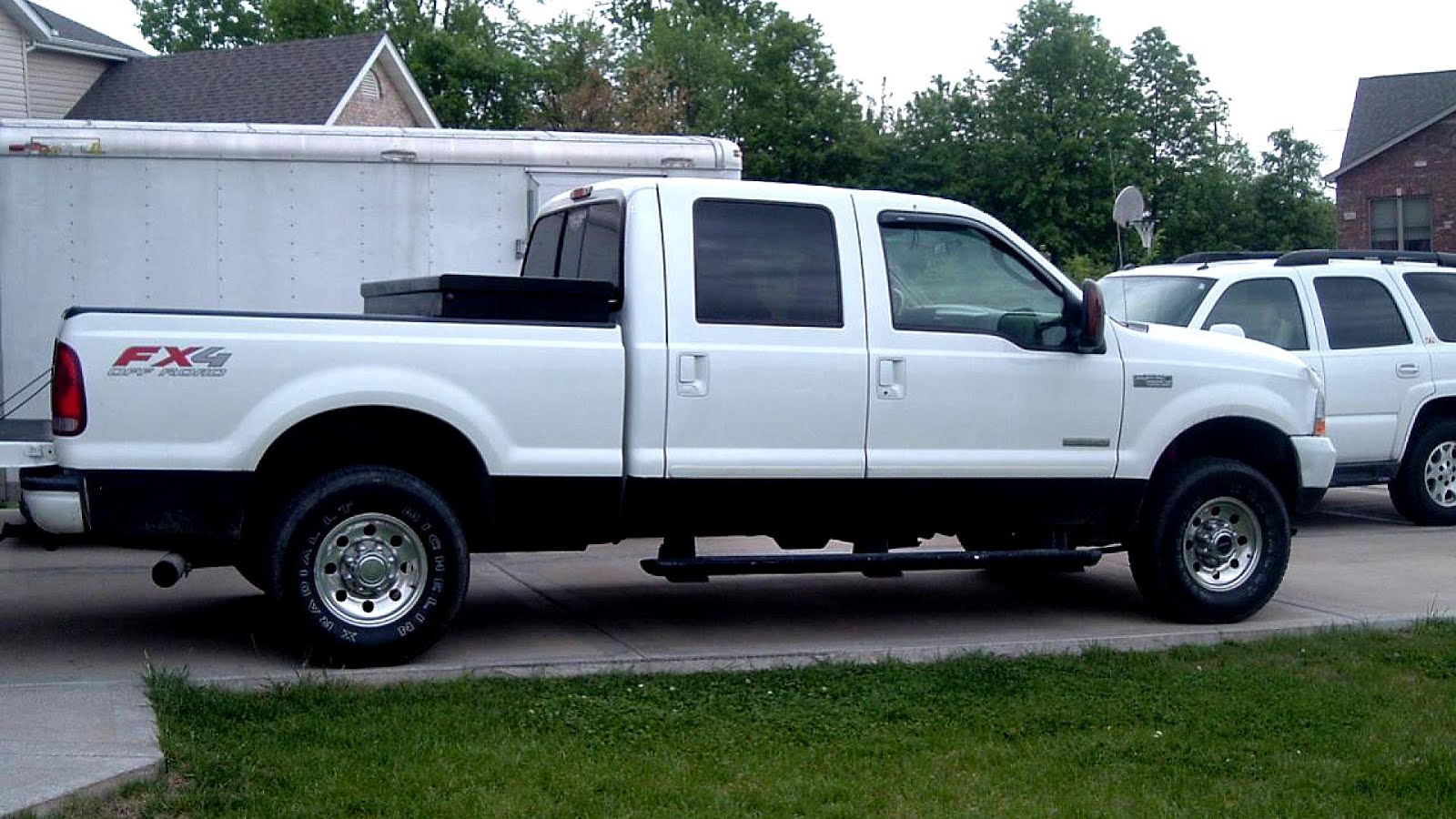
Key Features to Consider:
- Box Length and Volume: This dictates how much you can carry. Measure your typical loads to determine the minimum length you need.
- GVWR (Gross Vehicle Weight Rating) & Payload Capacity: GVWR is the maximum operating weight of the truck as specified by the manufacturer, including the vehicle itself, fuel, passengers, and cargo. Payload capacity is the maximum weight of cargo it can carry. Ensure the truck’s capacity meets or exceeds your heaviest anticipated loads.
- Engine Type (Gas vs. Diesel):
- Gas: Generally cheaper to buy and maintain, better for shorter trips and less frequent heavy hauling.
- Diesel: More expensive upfront, but offers superior fuel efficiency (especially under load), higher torque, longer lifespan, and better resale value for heavy-duty applications. Ideal for frequent, long-distance, or heavy hauling.
- Transmission (Automatic vs. Manual): Most modern box trucks are automatic, which is easier for urban driving and less experienced drivers. Manual transmissions offer more control and potentially better fuel economy for experienced drivers but are less common.
- Liftgate/Ramp: Essential for loading and unloading heavy or bulky items without a loading dock. Liftgates are powered, while ramps require manual effort.
- Roll-up vs. Swing Doors: Roll-up doors are convenient in tight spaces but can be prone to wear. Swing doors offer a full opening but require space behind the truck.
- Interior Condition of the Box: Look for e-track systems (for securing cargo), adequate lighting, and damage to walls or floor.
- Mileage and Age: While high mileage isn’t always a deal-breaker for well-maintained trucks, especially diesels, it will impact the price and potential future repairs.
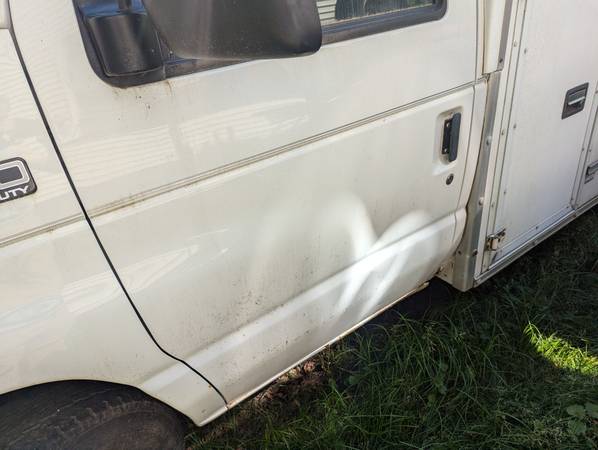
The Craigslist Search Strategy: Finding Your Ideal Box Truck
Navigating Craigslist effectively requires a strategic approach to filter through the noise and pinpoint genuine opportunities.
- Smart Keywords: Don’t just search "box truck." Use variations like "moving truck," "straight truck," "cube van," "delivery truck," and specific brands (e.g., "Isuzu NPR," "Ford E450 box," "Hino").
- Location Filters: Start with your local area but be prepared to expand your search radius to nearby cities or states if you don’t find what you need. A slightly longer drive might unlock a better deal.
- Price Range: Set a realistic price range based on your budget and market research. Avoid listings that are suspiciously low, as they could indicate scams or severe issues.
- Seller Type: Always filter for "by owner" to ensure you’re avoiding dealerships masquerading as private sellers.
- Regular Checks: New listings appear daily, even hourly. Set up email alerts or check Craigslist frequently to catch fresh postings.
- Initial Screening: Scrutinize the listing. Red flags include:
- Poor-quality photos or very few photos.
- Vague descriptions lacking details about mileage, year, make, model, or condition.
- "Too good to be true" prices for a truck that seems otherwise perfect.
- Requests for personal information or payment before viewing the truck.
The Inspection Process: What to Look For (Crucial Step!)
This is arguably the most critical stage of buying a used box truck. A thorough inspection can save you from costly post-purchase repairs.
- Exterior:
- Rust: Check wheel wells, frame, cab corners, and the underside of the box. Surface rust is common but deep, flaky rust is a major concern.
- Body Damage: Dents, dings, scratches. Are they cosmetic or indicative of a collision?
- Tires: Check tread depth, uneven wear (sign of alignment issues), cracks, and tire pressure. Don’t forget the spare.
- Fluid Leaks: Look under the truck for oil, coolant, transmission fluid, or brake fluid leaks.
- Lights & Signals: Ensure all exterior lights (headlights, tail lights, brake lights, turn signals, marker lights) are functional.
- Interior (Cab):
- Dash Lights & Gauges: Start the engine and check for warning lights (check engine, ABS, oil pressure). Ensure all gauges work.
- Seating: Condition of seats, rips, tears, adjustability.
- HVAC: Test the air conditioning and heater.
- Power Features: Windows, locks, mirrors, radio.
- Box Interior:
- Damage: Walls, floor, ceiling. Look for water stains or soft spots on the floor, indicating leaks or structural issues.
- Doors: Test the roll-up or swing doors for smooth operation and proper sealing.
- Liftgate/Ramp: If present, test its functionality thoroughly.
- Engine Bay:
- Fluid Levels: Oil, coolant, brake fluid, power steering fluid. Look for signs of neglect or contamination.
- Leaks: Hoses, lines, engine block.
- Belts & Hoses: Check for cracks, fraying, or excessive wear.
- Battery: Look for corrosion on terminals.
- Undercarriage: Get under the truck if possible (safely!) to inspect the frame for bends, cracks, or severe rust. Check suspension components and the exhaust system.
- Test Drive:
- Cold Start: Listen for unusual noises when the engine first starts.
- Brakes: Test stopping power, listen for grinding or squealing. Ensure it stops straight.
- Steering: Check for play, looseness, or pulling to one side.
- Transmission: Smooth shifts, no slipping or harsh jerking.
- Listen for Noises: Clunks, squeaks, grinding, whining, or humming.
- Acceleration: Does it accelerate smoothly without hesitation?
- Documentation:
- Verify it’s a clean title (not salvage, rebuilt, or flood-damaged). Ensure the VIN on the title matches the VIN on the truck.
- Maintenance Records: Ask the owner for any service history.
- VIN Check: Run a Carfax or AutoCheck report using the VIN. This provides invaluable history on accidents, odometer discrepancies, title issues, and service records.
- Professional Pre-Purchase Inspection (PPI): This cannot be stressed enough. If you’re serious about a truck, invest in a PPI by an independent mechanic specializing in commercial vehicles. They will spot issues you might miss and provide an unbiased assessment of the truck’s health.
Negotiation and Transaction: Sealing the Deal
Once you’ve found a promising truck and completed your inspection, it’s time for the negotiation.
- Research Market Value: Use resources like NADA Guides, Kelley Blue Book (for light-duty), or comparable listings on Craigslist, eBay, and commercial truck sales sites to understand the truck’s fair market value.
- Be Prepared: Know your maximum budget and what you’re willing to pay.
- Point Out Flaws: Use any issues discovered during your inspection (minor or major) as leverage for a lower price.
- Be Respectful but Firm: Acknowledge the seller’s attachment to their vehicle, but stand your ground on a fair price. Don’t be afraid to walk away if the price isn’t right or if the seller is unwilling to budge on significant issues.
- Payment: For safety, use a cashier’s check or arrange a bank transfer. Avoid carrying large sums of cash.
- Paperwork:
- Bill of Sale: Create a detailed bill of sale that includes the date, buyer and seller names/addresses, truck VIN, make, model, year, odometer reading, and the agreed-upon sale price. Both parties should sign it.
- Title Transfer: The seller must sign over the title to you. Ensure all sections are filled out correctly. You will then take this to your local DMV to register the truck in your name.
Potential Challenges and Solutions
Buying from a private owner comes with unique challenges, but most can be mitigated with diligence.
- Lack of Warranty: Unlike a dealership, private sales are almost always "as-is."
- Solution: A thorough pre-purchase inspection is your only real safeguard.
- Hidden Issues: Problems might surface after the sale that weren’t apparent during inspection.
- Solution: Again, the PPI is key. For major components, consider if the seller would agree to a short warranty clause in the bill of sale for things like engine or transmission, though this is rare in private sales.
- Scams: Fake listings, VIN cloning, or fraudulent titles.
- Solution: Verify the seller’s identity, meet in a public place, never send money before seeing the truck and title, and always run a VIN check.
- Title Problems: Outstanding liens, salvage titles not disclosed, or lost titles.
- Solution: Always verify the VIN on the truck matches the title. Run a VIN check to uncover any liens or title brands. If there’s a lien, ensure the seller can provide proof of its release.
- Transportation: If the truck isn’t roadworthy, how will you get it home?
- Solution: Plan ahead for towing services or temporary tags if needed.
Estimated Price Range for Used Box Trucks (By Owner)
Please note: These are estimated price ranges for used box trucks sold by private owners on Craigslist. Actual prices vary wildly based on location, specific make/model, year, mileage, engine type, overall condition, and demand. This table provides a general guideline.
| Truck Type/Size | Typical Years | Mileage Range (Miles) | Estimated Price Range (By Owner) | Key Factors Affecting Price |
|---|---|---|---|---|
| Light-Duty | 2005-2015 | 100,000 – 250,000 | $8,000 – $20,000 | Gas vs. Diesel, Condition, Liftgate |
| (10-14 ft) | 2016-2022 | 50,000 – 150,000 | $20,000 – $40,000+ | Age, Features (AC, Power Windows) |
| Medium-Duty | 2005-2014 | 150,000 – 350,000 | $12,000 – $28,000 | Diesel vs. Gas, Liftgate, Maintenance Records |
| (15-20 ft) | 2015-2021 | 80,000 – 200,000 | $28,000 – $55,000+ | Engine Hours (for diesel), Transmission Type |
| Heavy-Duty | 2005-2013 | 250,000 – 500,000+ | $15,000 – $35,000 | Engine Rebuilds, Transmission, PTO (if applicable) |
| (22-26 ft) | 2014-2020 | 150,000 – 350,000 | $35,000 – $70,000+ | Reputation of Engine/Transmission, Condition of Box |
Disclaimer: These prices are estimates only and do not constitute financial advice. Always conduct thorough research and inspection before purchase.
Frequently Asked Questions (FAQ)
Q1: Is it safe to buy a box truck on Craigslist?
A1: Yes, it can be safe, but it requires vigilance. Always meet in a public place during daylight, bring a friend, never go alone, and never pay or share personal information before seeing the truck and verifying the seller and title. Use a VIN check service.
Q2: What’s the average lifespan of a used box truck?
A2: A well-maintained diesel box truck can easily last 300,000 to 500,000 miles or more, especially the engine. Gas engines typically have a shorter lifespan, often 150,000 to 250,000 miles. The lifespan also depends heavily on the type of work it performed (e.g., long-haul vs. stop-and-go city driving).
Q3: Should I get a diesel or gas box truck?
A3: For heavy loads, frequent use, or long distances, diesel is generally preferred due to better fuel economy, torque, and longevity. For lighter loads, occasional use, or primarily city driving, a gas truck might be more cost-effective upfront and simpler to maintain.
Q4: What’s a GVWR, and why is it important?
A4: GVWR stands for Gross Vehicle Weight Rating. It’s the maximum operating weight of the truck as determined by the manufacturer, including the truck itself, fuel, passengers, and cargo. It’s crucial because it determines the truck’s legal payload capacity and whether a CDL (Commercial Driver’s License) is required to operate it. Exceeding GVWR is illegal and unsafe.
Q5: Can I finance a used box truck bought from an owner?
A5: It’s more challenging than financing from a dealership, but not impossible. Some banks or credit unions offer personal loans or specific commercial vehicle loans for private sales, especially if the truck is newer and in good condition. You’ll likely need a higher credit score and a larger down payment.
Q6: What documents do I need to complete the sale?
A6: You’ll need a signed Bill of Sale (detailing the truck, price, and parties involved) and the properly signed-over vehicle title from the seller. Some states may require additional forms.
Q7: How do I check for liens on a title?
A7: The most reliable way is to run a VIN check through services like Carfax or AutoCheck. These reports will typically disclose any existing liens. You can also contact your state’s Department of Motor Vehicles (DMV) or equivalent agency with the VIN to inquire about outstanding liens. Always ensure the seller provides proof that any lien has been satisfied before completing the purchase.
Conclusion
Acquiring a used box truck from a private owner on Craigslist can be a highly rewarding and cost-effective endeavor. The potential for significant savings, direct negotiation, and access to a vehicle’s genuine history makes it an attractive option for businesses and individuals alike. However, this path demands diligence, thorough research, and a meticulous inspection process.
By understanding the types of box trucks available, implementing a smart search strategy, performing a comprehensive pre-purchase inspection (ideally with a professional mechanic), and negotiating wisely, you can mitigate the risks associated with private sales. While challenges exist, the actionable insights and practical advice provided in this guide aim to empower you to navigate the Craigslist marketplace with confidence. A well-researched and thoroughly vetted used box truck can indeed become an invaluable asset, driving your operations forward without breaking the bank.

